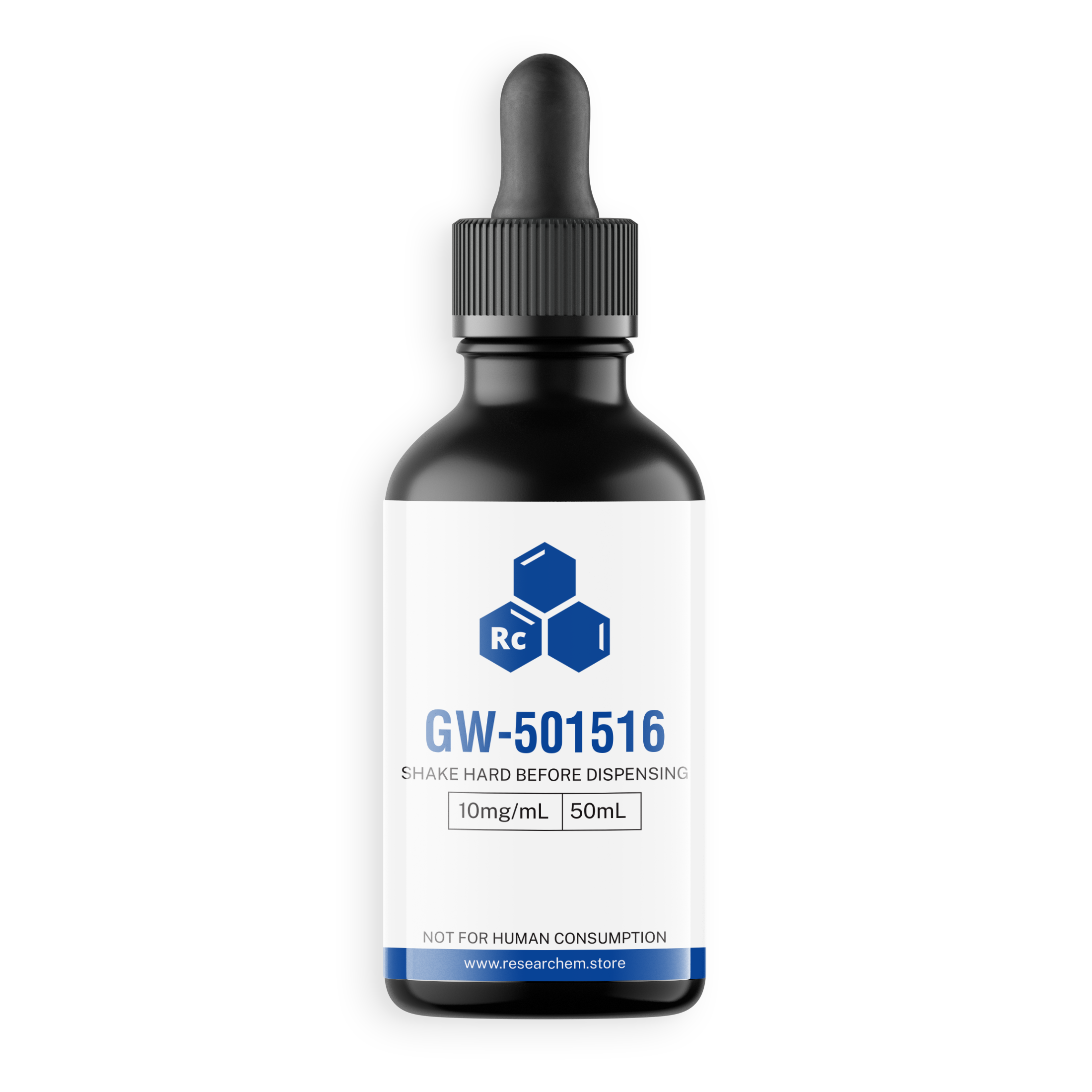GW501516 - Cardio in a Bottle?
GW-501516, also known as cardarine, is a synthetic agonist of the PPAR-δ (delta) receptors that presents benefits regarding primarily fat loss, lipid profile regulation, and cardiovascular endurance. Though it has few human clinical trials (which were conducted by GlaxoSmithKline), the data we do have available seems promising.

Mechanism of Action
GW-501516 exerts its actions in the body via binding to and activating the PPAR-δ receptors. The agonism of these receptors causes the upregulation of multiple genes, including:
- Carnitine Palmitoyltransferase 1 – transports fatty acids into mitochondria for β-oxidation.
- Acyl-CoA oxidase – first enzyme in peroxisomal β-oxidation.
- Medium Chain Acyl-CoA Dehydrogenase – for mitochondrial fatty acid catabolism
Through other enzymatic mechanisms, GW-501516 also promotes the use of lipids for energy rather than glucose, your body's preferred energy source. This itself increases endurance, as glucose is preserved for later use.
PPAR-δ agonism also results in the induction of PGC-1α, enhancing electron transport chain capacity and ATP production.
In simpler terms, GW-501516 increases fat loss through multiple genomic pathways, and allows for increased muscular and cardiovascular endurance.
Cancer Risk
In recent years, GW-501516 has been surrounded by controversy involving cancer risk due to certain clinical trials in which rodents developed tumors. In one study, Han Wistar rats developed cancer in just under 2 years. At face value, this may seem intimidating, but issues arise when the study is analyzed properly. For one, Han Wistar rats only have a life expectancy of around 2-3 years. This means that the rodents in this study were given GW-501516 for more than 2/3rds of their lifespan. This would be the equivalent of a human using the same compound for 50+ years, which is, generally speaking, not very realistic.
Secondly, Han Wistar rats are notorious for their susceptibility to developing cancers; specifically, adrenocarcinomas (tumors in the adrenals). Compared to humans, they're 5-10x more likely to develop cancer.
In addition to this, the rodents in this study were given 5/kg to 30mg/kg daily. Though this might seem like an astronomical dose if given to humans, there are metabolic differences that need to be accounted for. Rodents, particularly Han Wistar rats, have a much faster metabolism and shorter lifespan, meaning they often require higher per-kilogram doses to achieve similar plasma concentrations or pharmacodynamic effects. Furthermore, allometric scaling — which adjusts for body surface area rather than weight — typically reduces the human equivalent dose by a factor of 6–10. Therefore, a 30 mg/kg dose in Han Wistar rats translates to only 0.5mg/kg in humans. For an 80kg human, this would be roughly 40mg. This is often MUCH higher (around double) than what most individuals are taking when using GW-501516 for performance enhancement.
With all of these factors considered, it is unlikely that GW-501516 poses any significant carcinogenic risk to the average healthy human.
Observed Effects
Most individuals who use cardarine are looking for one of two things - accelerated fat loss or cardiovascular endurance enhancement. Due to it's effective mechanisms, cardarine does a fantastic job at both of these while posing little to no risk symptomatically, physically, and mentally.
I've used cardarine myself numerous times, and I've noticed accelerated fat loss, increased endurance, and a massive improvement to my lipid panels on bloodwork.
Conclusions
GW-501516 is a compound that can be utilized by virtually everyone with nearly no adverse effects (though, as with any compound, there will be outliers and statistical anomalies). In fact, GW-501516 is so innocuous that it's often what I immediately recommend for clients looking to improve cardiovascular endurance and fat loss capacities.